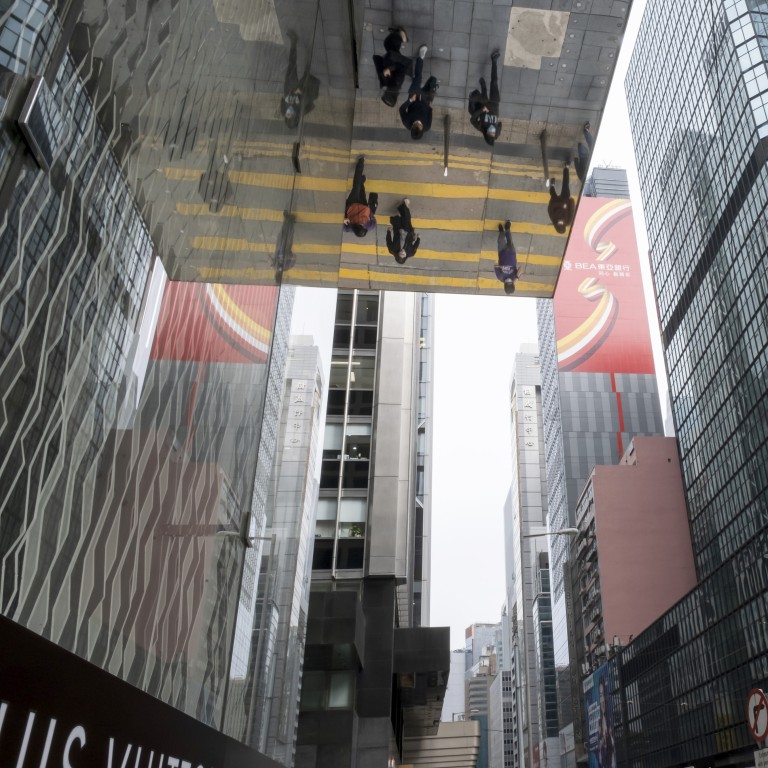
Hong Kong stocks risk inertia as doubts impede Tencent, Alibaba price targets after US$310 billion surrender from peak
- Hang Seng Index has trailed the S&P 500 Index by 4.5 percentage points this year, 32 points over 12 months and 62 points over a five-year time frame
- Tencent is trading at 21 per cent below analysts’ price target, near a record gap, while the discount on Alibaba stock is also near a record 33 per cent gap
“There may be a correction in tech stocks, and capital will continue to flow into traditional economy and value stocks,” said Stanley Chan, director of research at Emperor Securities. “This trend is still continuing. We won’t be able to see strong gains this quarter, like in the past, as heavyweight tech stocks will still drag on the market.”
Alibaba, the owner of this newspaper, and Tencent underline the market malaise. The Hang Seng Index has trailed the S&P 500 by 4.5 percentage points this year and 32 points over the past 12 months, according to Bloomberg data. Over a five-year time frame, the underperformance was even wider at 62 points.
The US markets will be the most attractive for investors over the next six to 12 months on the back of large fiscal stimulus, according to Will Leung, head of investment strategy at Standard Chartered’s wealth management unit.
“We believe the US economy will perform well and see a good recovery, and overall the markets are optimistic about the upcoming first quarter earnings of US companies,” said Leung during a media briefing on April 7.
The Hang Seng Index is likely to suffer from inertia in this quarter, he said, bound within the 28,000- 31,000 range. The gauge, which closed at 28,698.80 on Friday, could dip to 25,000 if sentiment worsens, knocking on the door of a bear market, or about 20 per cent below its February 17 peak.
To be sure, the avalanche of mainland cash appears to have returned to Hong Kong in the first few trading sessions in April, with net inflows of HK$11 billion so far this month, according to exchange data. Net purchases of Tencent alone amounted to HK$9.3 billion.
Mainland investors took HK$12.7 billion off the table in March, the first monthly outflows since February 2019.
The market outlook will also hinge a lot on the movements in US Treasury yields, according to said Louis Tse Ming-kwong, managing director of Wealthy Securities.
A climb towards 2 per cent on benchmark 10-year notes could deal a psychological blow to financial markets, said Emperor Securities’ Chan.
These geopolitical risks will weigh on the Hang Seng Index in the short term, said Nixon Mak, head of Hong Kong pensions and solutions strategist in Asia-Pacific for Invesco.
“Hong Kong is basically the bridge between China and the US. As relations between the two are turning sour, Hong Kong cannot [perform] better than other” markets, he said. Without a resolution between the two economies, “Hong Kong is still on the negative side in terms of [market] sentiment”.
As for Tencent and Alibaba stock prices, market pessimism remains.
At HK$620.50, Tencent traded at HK$166.72 or 21.2 per cent below the consensus 12-month price target among analysts tracked by Bloomberg, near its record gap of 24 per cent. For Alibaba, the current 30.7 per cent gap below its price target is near a high of 33 per cent seen in December.
As with the weak market response to recent secondary listings of Baidu and Bilibili in Hong Kong, technology stocks appear to be out of favour for now.
“This tells us that investor sentiment is currently quite weak, and may stay this way for a period of time,” said Leung at Standard Chartered.

